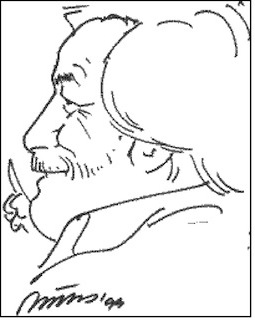
I think we all get that we are but miniscule elements in a vast universe, perhaps but one universe among many. Perhaps this sense of awe underlies much of spiritual and religious practices around the world. I was recently reminded of this provoker of humility by this photograph.
Source: Nasa http://www.acienciasgalilei.com/program/fondosescrt/saturno4-cassini-800.htm
If you look very, very closely you can see Earth near the upper gray ring at about the 280° position. If you increase the size of this picture or find it online you will see Earth more clearly.
Well, lots of places to go with this, but for me it relates to the difficulty I have with the religious and, sometimes, the spiritual quest that is so much a part of Wilberian integral. Sites such as these images provided from outer space are truly awe inspiriting. And the awe that I feel is about how little we know.
Consciousness raising, mindful meditation and the like are important because they help us comprehend our lives and out relationships with others and the material universe in ways that help us make sense, develop meaning and hopefully make better decisions on all levels. I am a meditator, albeit a challenged one. I hope that my consciousness as awareness is greater than it was yesterday or last year or when I was twelve. I spend many, many hours in activities to enhance that consciousness as awareness during the seventies and eighties and since. In those earlier years it was in all kinds of human potential groups from Gestalt to Sensory Awareness to various body therapies. I think the time was well spent. But I have made mistakes in my life since then that have left me wondering just how conscious and aware I am. Of course, those mistakes are learning opportunities, even when the lessons are hard to swallow.
But I have always felt on the margins of Wilberian integral. Perhaps that is why Integral Leadership Review exists: it is a way of bridging not only various worldviews and domains, but my own connections with past, present and future while knowing that each of those are illusory. They are illusory in that they exist in my mind and my mind distorts the past through selection, etc. My mind distorts the future in that it is pure imagination informed by learning brought from the past. My mind distorts even the present because it is a fraction of a second behind what is actually taking place. And to top that off, my mind only pays attention to things selectively, even in the “present.”
I recently watched a Sam Harris presentation to a conference of 4000 atheists in Australia. His subject was Death. Harris argued that all of the world’s religions have one thing in common: a denial of death. Each provides some hope for a continuation of our selves beyond this current lifetime, whether in the form of consciousness, a new birth and form or another life in some rhapsodic level of existence.
Sp what is the integral view of death? Well, on Integral Life we find writing on conscious reincarnation. (http://integrallife.com/future-buddhism/conscious-reincarnation) There it is. A connection between integral and religion, not just consciousness. Maybe my tentativeness was well called for, but to be fair, this is Ken Wilber talking about Tibetan Buddhism. But there are also multiple entries on the site about Integral Christianity. At Boulder Integral in April 2009 Sansei Doshin M>J> Nelson and Nomali Perera stated that we have already died many deaths (http://www.boulderintegral.org/tag/death-and-dying/). As much as I appreciate aspects of Buddhism (but very little in most of the other religions in the world). Even Harris sees Buddhism as more of a science than a religion (http://integrallife.com/member/camfree/blog/new-atheism-mysticism). Cameron noted this in his blog that claims that the New Atheists are mystics “of one source or another”. A mystic is someone who sees that we cannot answer many of the questions posed by religions and that accepting answers based on mere faith is unacceptable.
Is integral searching for a religion to emulate? If so, is this just another emulation of all of the other religions seeking to deny death?
The answers to these questions in no way diminishes the genius of Wilber’s contributions. But they do impact my relationship with aspects of the integral “movement.” And Ken makes it easy for us, no matter how we respond:
I hope you enjoyed this issue of Integral Leadership Review and can use at least some of its contents to move generatively into your being and doing.



Hey Russ, this issue’s content has gotten my ‘doing’ going. Thanks. If I understand your contention correctly, you are troubled by the utilization of Buddhism to describe and explain Integral Theory. As you probably know, Ken has admitted this is because that has been his path and the lens by which he has found best views the world. He feels that Buddhism is the best way to progress consistently through the stages. With that amount of experience and research, he is in a pretty good position to offer a well informed suggestion.
Interestingly though, I have noticed that this has led to the ostracization of other ways in the general Integral community. For example, Magic methods of shamanism have been transcended, but not really included as a valid way. Gary Stamper it sounds is taking a good shot at Integral Shamanism but I’d expect that he’s not fully embraced by the masses. [Not that we quite number a “mass” yet 😉 but you get the idea].
So what comes up for me is the feeling that some in the Integral “movement” are making the same mistake the hard sciences have historically made. That is, confusing correlation with being. Science has a tendency to say that “This is the way things are” base on results of experiments and theories only to be constantly embarrassed when contradicting information disproves the belief.
I feel that we’d be well heeded to remember that even Integral Theory is partial and we don’t know Everything. Never will. Let’s keep that grasping hand light and not hold so tight. Let’s back up and create some space to allow alternatives to be accepted and explored. They might not be the best way for many, many people, but that doesn’t mean they won’t work for a few. Consciousness needs that expression too.
I guess I did not write clearly, Kevin. I have no problem with Buddhism in integral. I like what Sam Harris said, i.e., Buddhism is more a science than a religion. I have no problem with practices associated with Buddhism, e.g. meditation, etc. What I have a problem with is religion. I have read Ken on all of this. He distinguishes between the two. I support his view on this.
I am not sure what the integral movement is doing at this point other than trying to attract energy. Not sure where that energy is going. How about an article on that someone?
We need to hold most, if not all, theories and beliefs lightly. They are our maps (a la Ken) not our reality.
Thanks for the comment.